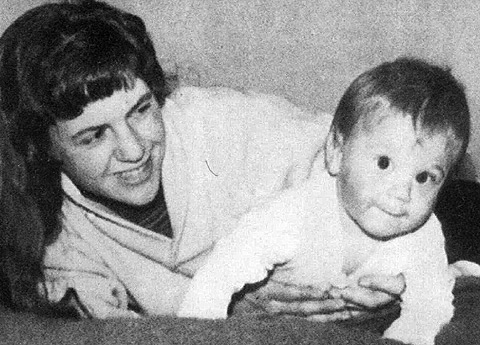
Consistently in the Gospels, Christ tells people that they must become like little children in order to enter the Kingdom of God, in order to see the world properly through lenses unclouded by the ego (in modern terms), unimpaired by the countless protections and rationalizations and self-justifying constructions which permeate adult life. Last week Letters of Note, a blog that publishes interesting letters by public figures, featured an explication of the inner child by none other than Ted Hughes as he addresses his son’s feelings of childishness. It’s well worth reading in its entirety here, but some highlights include:
Nicholas, don’t you know about people this first and most crucial fact: every single one is, and is painfully every moment aware of it, still a child…
It’s something people don’t discuss, because it’s something most people are aware of only as a general crisis of sense of inadequacy, or helpless dependence, or pointless loneliness, or a sense of not having a strong enough ego to meet and master the inner storms that come from an unexpected angle…Everybody tries to protect this vulnerable two three four five six seven eight year old inside, and to acquire skills and aptitudes for dealing with the situations that threaten to overwhelm it…
…Usually, that child is a wretchedly isolated undeveloped little being. It’s been protected by the efficient armour, it’s never participated in life, it’s never been exposed to living and to managing the person’s affairs, it’s never been given responsibility for taking the brunt. And it’s never properly lived. That’s how it is in almost everybody…At every moment, behind the most efficient seeming adult exterior, the whole world of the person’s childhood is being carefully held like a glass of water bulging above the brim. And in fact, that child is the only real thing in them. It’s their humanity, their real individuality, the one that can’t understand why it was born and that knows it will have to die, in no matter how crowded a place, quite on its own. That’s the carrier of all the living qualities. It’s the centre of all the possible magic and revelation. What doesn’t come out of that creature isn’t worth having, or it’s worth having only as a tool—for that creature to use and turn to account and make meaningful. So there it is. And the sense of itself, in that little being, at its core, is what it always was. But since that artificial secondary self took over the control of life around the age of eight, and relegated the real, vulnerable, supersensitive, suffering self back into its nursery, it has lacked training, this inner prisoner. And so, wherever life takes it by surprise, and suddenly the artificial self of adaptations proves inadequate, and fails to ward off the invasion of raw experience, that inner self is thrown into the front line—unprepared, with all its childhood terrors round its ears. And yet that’s the moment it wants. That’s where it comes alive—even if only to be overwhelmed and bewildered and hurt. And that’s where it calls up its own resources—not artificial aids, picked up outside, but real inner resources, real biological ability to cope, and to turn to account, and to enjoy. That’s the paradox: the only time most people feel alive is when they’re suffering, when something overwhelms their ordinary, careful armour, and the naked child is flung out onto the world. That’s why the things that are worst to undergo are best to remember.
 With brilliant articulation, Hughes is touching on the truth that people cover over their true selves, shielding themselves from their inner vulnerability with the trappings of grasped identity. The gracious truth that identity is given, or present, rather than earned and manufactured becomes impossible to experience when the “secondary self”, the “armor” is constantly on as a way to muster our best resources to cope with the world. Suffering, in this sense, often can make people alive by overwhelming the protection, the ego, and forcing someone to their knees. Perhaps we’re straying from the thrust of Hughes’s thought, but the insights translate pastorally. Because of our need to shield our true selves by rigorously controlling experiences, often the only way people can stop these controlling defense mechanisms is when they are entirely overwhelmed.
With brilliant articulation, Hughes is touching on the truth that people cover over their true selves, shielding themselves from their inner vulnerability with the trappings of grasped identity. The gracious truth that identity is given, or present, rather than earned and manufactured becomes impossible to experience when the “secondary self”, the “armor” is constantly on as a way to muster our best resources to cope with the world. Suffering, in this sense, often can make people alive by overwhelming the protection, the ego, and forcing someone to their knees. Perhaps we’re straying from the thrust of Hughes’s thought, but the insights translate pastorally. Because of our need to shield our true selves by rigorously controlling experiences, often the only way people can stop these controlling defense mechanisms is when they are entirely overwhelmed.

COMMENTS
7 responses to “Ted Hughes on Inner Children and the Center of Magic and Revelation”
Leave a Reply













Excellent post! “…the only way…is when they are entirely overwhelmed”. When you look back, you can see it is a blessing.